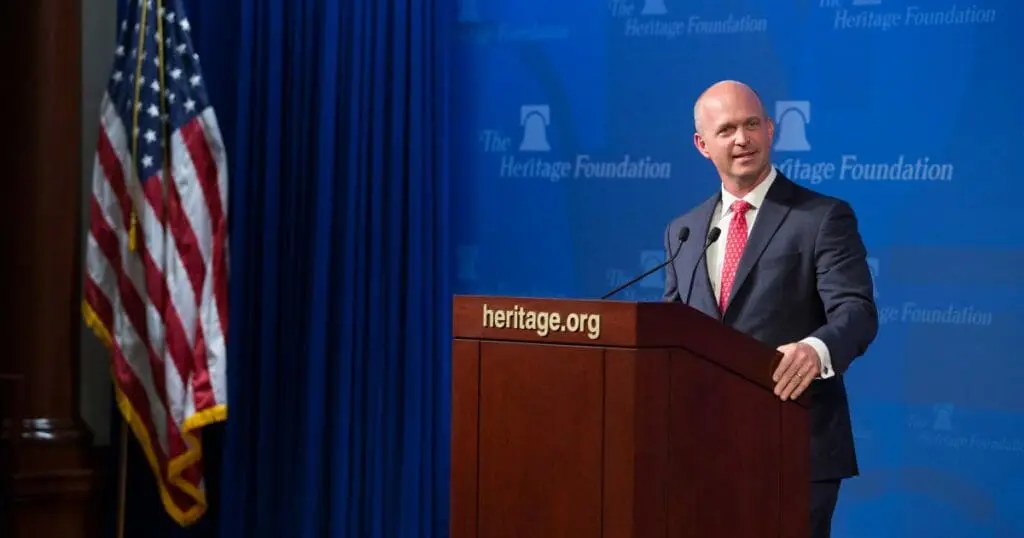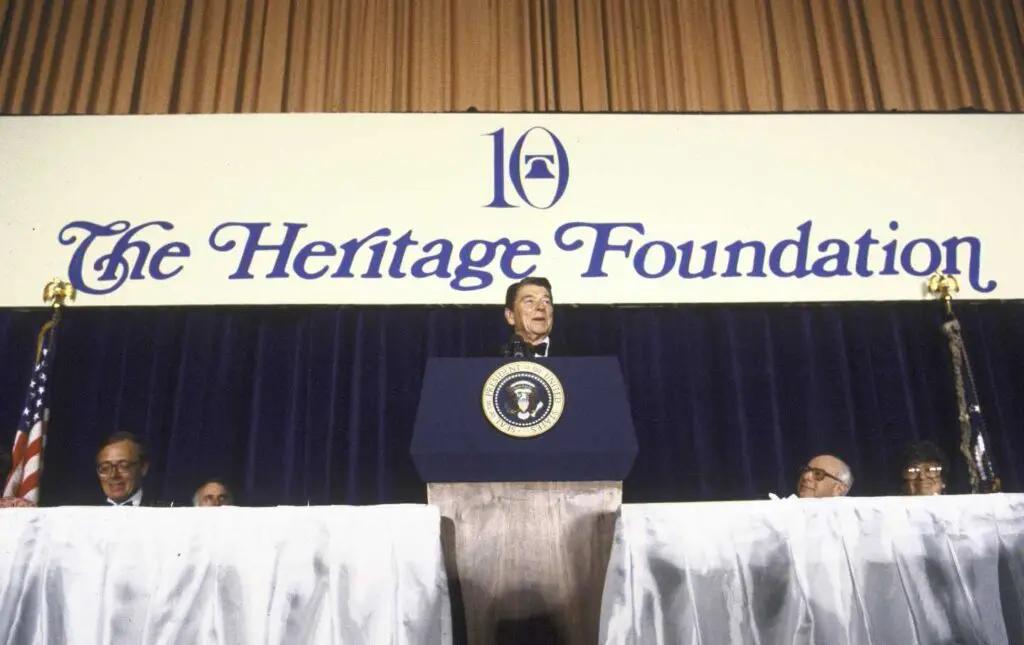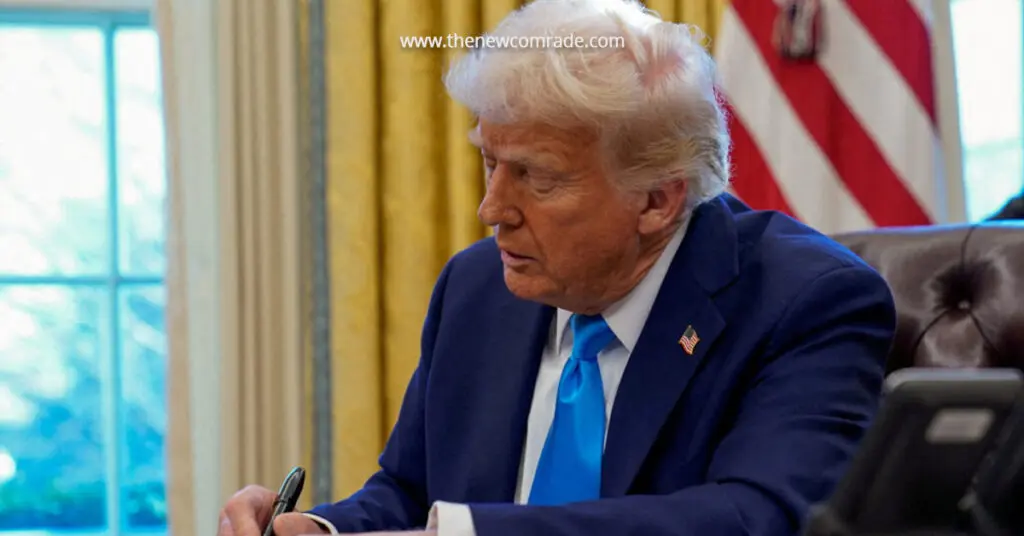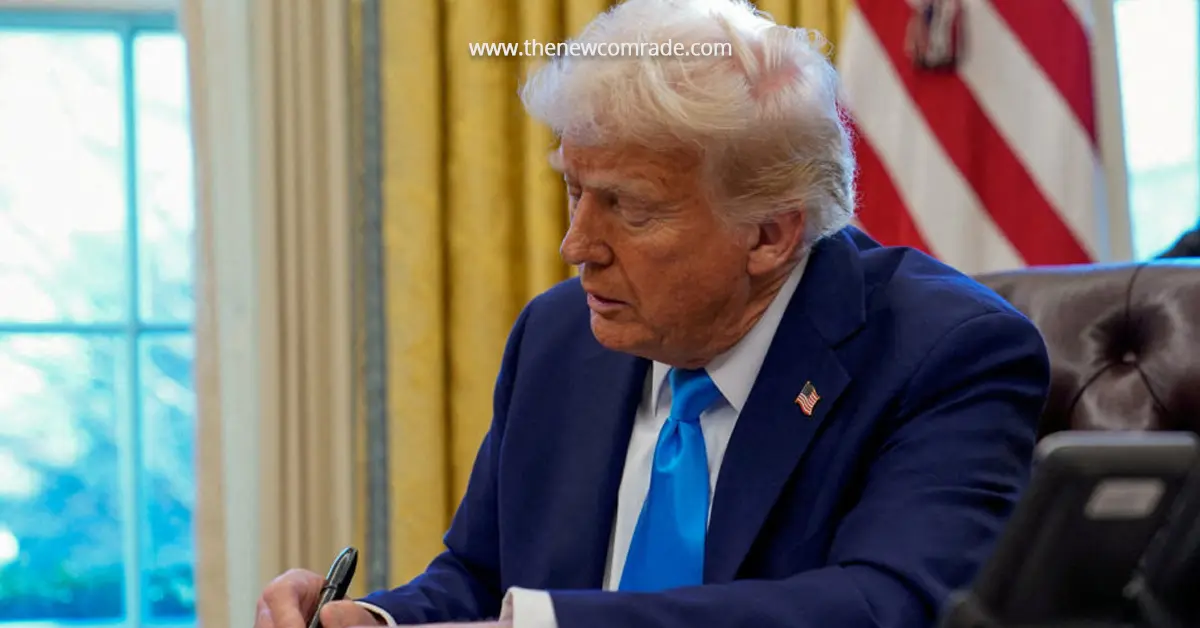Kevin Roberts, president of the Heritage Foundation, summarized the vision presented in his organization’s 2023 book, ‘Mandate for leadership: The Conservative Promise’. This book is part of Heritage’s Presidential Project 2025, aimed at shaping the next Republican administration. It advocates for filling key government positions—including second-tier roles—with presidential loyalists while purging departments of employees who support Biden administration policies.
The book stirred significant controversy, prompting President Joe Biden to warn, “Project 2025 should scare every American. It would give Trump unlimited power over our daily lives, allow him to use the presidency to retaliate against his enemies, and eliminate the checks and balances that make America the greatest democracy in the world.” For his part, Donald Trump sought to distance himself from the project, stating in mid-2024, “Whatever they are doing, I wish them well, but I have nothing to do with them.”
However, many individuals who played key roles in Trump’s first administration co-authored the book, including Christopher Miller (former acting Secretary of Defense), Rick Dearborn (executive director of Trump’s 2016 transition team), Paul Dans (a leading figure in Project 2025), and Stephen Groves (former deputy White House press secretary). Their involvement suggests strong ties between the book and Trump’s inner circle.

The Heritage Foundation’s influence Under Reagan
The Heritage Foundation played a pivotal role in shaping Ronald Reagan’s administration when he took office in 1981. It provided a massive policy guide titled ‘Mandate for Leadership’, containing over 2,000 recommendations on how to govern and implement conservative policies. The Reagan administration reportedly implemented more than 60% of these recommendations within its first year, using the guide to roll back policies from Jimmy Carter’s presidency, which had been marked by the Iran hostage crisis and the Soviet invasion of Afghanistan.
‘Mandate for leadership: The Conservative Promise’, argues that America’s greatest threat now comes from within. The book claims that leftist ideology has infiltrated government institutions, transforming the federal government into a weapon against conservative values. It warns of an “existential crisis,” citing concerns over gender ideology, pornography, drug addiction, and restrictions on gas-powered vehicles in the name of climate policy. It also criticizes the influence of unelected bureaucrats, advocating for a complete restructuring of the federal government.
The Heritage Foundation assembled nearly 400 researchers and experts to write ‘‘Mandate for leadership: The Conservative Promise’, covering 30 key issues—including White House management, defense, intelligence, education, and agriculture. The book lays out a roadmap for the next conservative president to take control of the executive branch and leadership of the government from the hands of bureaucrats in order to “rescue” America from its current trajectory. According to the book’s introduction.

Preparing a Conservative Workforce
The book argues that electing a conservative president is not enough—without a loyal and well-prepared staff, the entrenched bureaucracy will continue to pursue its own agenda. To counter this, the president must rely on a trained and committed cadre of staff to implement his agenda, which requires equipping these staff with the tools, knowledge and support. Heritage therefore has built a database of conservative professionals to be ready to work with the president on his first day in the office.
The book highlights that, there are roughly 3,000 presidentially appointed positions, plus an additional 1,000 that require Senate confirmation. The first Trump administration, the book notes, had fewer political appointees in its early months than any other recent presidential administration, which contributed to internal resistance against his policies. Project 2025 aims to prevent this by assembling a trained workforce to immediately implement conservative reforms and dismantle the so-called “administrative state.”
Key Themes in ‘Mandate for leadership: The Conservative Promise’
1. Restoring the Family as the Foundation of American Life
The book describes the American family as being in crisis, citing statistics that 40% of children are born to unmarried mothers. It links absence of the father to poverty, crime, mental illness, suicide, drug addiction, and school dropout rates, arguing that government programs fail because they do not address the root cause: the breakdown of marriage and family.
It calls for eliminating abortion, LGBTQ+ inclusivity, and reproductive health initiatives from all federal agencies, contracts, and grants. It also proposes criminalizing pornography and shutting down the telecommunications and technology companies that facilitate its spread. Additionally, it advocates for strengthening parental control over education, ensuring schools serve parents rather than the state, and cutting federal funding to schools and teachers who oppose these principles.
2. Dismantling the Administrative State
The book asserts that the federal government must be significantly downsized to serve the American people effectively. It recommends eliminating large numbers of bureaucrats who, it claims, push liberal policies such as climate regulations, immigrant protections, and diversity quotas.
3. Defending U.S. Sovereignty, Borders, and Resources
The book identifies China as America’s top adversary, arguing that unrestricted trade with China has gutted U.S. manufacturing and enriched only a handful of corporations. It calls for severing economic ties with Beijing, shutting down Confucius Institutes, and banning TikTok.
It also urges prioritizing military and political support for Israel while cutting funding to the Palestinian Authority. Additionally, it proposes withdrawing from international organizations like the World Health Organization (WHO), which it accuses of mismanaging the COVID-19 pandemic, and halting funding for global initiatives that promote abortion or LGBTQ+ rights.

Notable Recommendations
The book’s 30 chapters cover a range of policy areas. Here are a few key recommendations related to national security and foreign policy:
National Security Council (NSC)
The book argues that NSC staff should be thoroughly vetted for their commitment to conservative policies. It calls for reducing NSC personnel—already cut from 400 under Obama to 150 under Biden—by eliminating departments and removing staffers who support liberal policies, particularly on climate change and transgender rights.
Department of Homeland Security (DHS)
Written by Ken Cuccinelli, former acting deputy secretary of Homeland Security, this chapter calls for dismantling DHS and redistributing its responsibilities to other agencies like the Departments of Transportation, Defense, and the FBI. This, it argues, would enhance efficiency while shrinking the federal government.
Department of Defense
The book claims the Pentagon prioritizes progressive policies over military readiness. Christopher Miller, former acting Secretary of Defense, stresses the importance of avoiding costly foreign conflicts while pushing allies—such as NATO countries, South Korea, and Gulf states—to take greater responsibility for their own defense.
Miller also criticizes declining U.S. foreign military sales due to bureaucratic delays, calling for a faster approval process and increased domestic manufacturing of defense equipment. Additionally, he advocates reinstating service members discharged over COVID vaccine mandates and reversing policies that allow transgender individuals to serve in the military.
State Department
Kyron Skinner, former director of policy planning at the State Department, argues that the agency operates as an independent entity resistant to presidential authority. He suggests a radical restructuring, including firing ambassadors who do not align with the administration’s agenda and cutting off foreign aid until it is reviewed by political appointees.
USAID (U.S. Agency for International Development)
Max Primorac, a former USAID official, accuses the agency of using taxpayer money to promote abortion, climate initiatives, and LGBTQ+ rights. He calls for shutting down diversity and gender equality programs and redirecting aid efforts to counter China’s influence instead.
Consistent with this approach, Trump immediately issued an executive order freezing all foreign aid for 90 days—except military assistance to Israel and Egypt—until a full review was conducted.

Is Project 2025 a Grand Strategy?
The concept of a “grand strategy” is debated among scholars. While some define it as a long-term plan integrating political, military, economic, and diplomatic tools to advance national interests, others argue that governments tend to act more reactively.
Ronald Krebs, in ‘The Oxford Handbook of Grand Strategy’, contends that populism—by claiming to represent the “true people” against corrupt elites—undermines rational policy-making and deepens societal divisions. Similarly, Peter Dombrowski, ‘in Trump, Project 2025, and American Grand Strategy’, argues that gutting the federal bureaucracy in favor of ideological loyalty could weaken national security and scientific innovation.
Despite Trump’s public distancing from Project 2025, many of his early executive actions align closely with Delegating Leadership, suggesting it serves as a blueprint for his administration’s agenda.
Disclaimer: The opinions expressed in this article are solely the author’s and do not neccessarily reflect the opinions or beliefs of the website and its affiliates.









